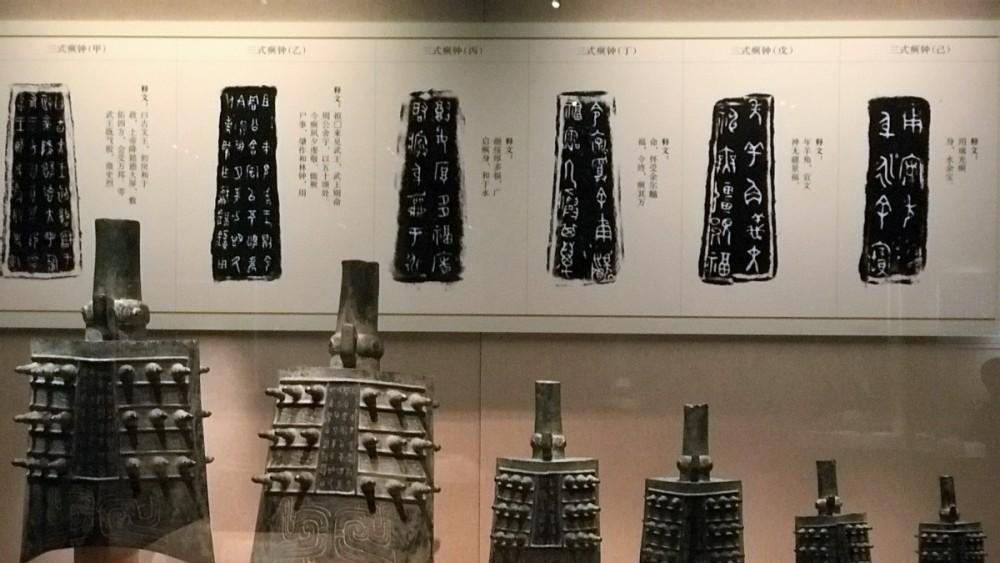It is a great pity that the tombs of the 12 kings of the Western Zhou Dynasty, because they are not sealed or trees, all the tombs of the kings of the Western Zhou Dynasty have mysteriously disappeared. Because I did not find the tomb of the King of Zhou, I did not know what kind of luxurious life the King of Zhou would live. If you compare the bronze artifacts excavated from the tombs of the princes of the Spring and Autumn Warring States period that have been stolen or not stolen, such as the tomb of the Duke of Qin and the tomb of Marquis Yi of Zeng, the zhou king's utensils are only on top of it and not below it. It's all incredibly beautiful to think about. Unfortunately, unfortunately, there are not many surviving devices that are sure to be used by the King of Zhou.
However, in the value system of Western Zhou society, the King of Zhou sat at the tip of the pyramid, and the nobles all looked up to the King of Zhou and circled around the King of Zhou, and regarded the rewards of the King of Zhou, such as the order and reward, as the supreme glory. To celebrate this honor, they will make bronzes to remember this honor. Therefore, many of the deeds of the King of Zhou were preserved through the bronzes made by the nobles. This kind of bronze made by the nobility involving the king of Zhou accounts for a large proportion of bronzes in the Western Zhou, such as the weight of the country such as the ligui, the wall plate and so on. However, there are not many remnants of the real Zhou King's self-made instruments.
Two of the pieces in the "Zhaozi China - Bronzes and Golden Essences Unearthed from Baoji" held at the National Museum are most likely made by a Zhou king for the sacrifice of the ancestral temple and ancestors. Among them, the gui is very worthy of viewing, it was made by King Li of Zhou to express his heart to his ancestors, and its inscription shows that King Li of Zhou is upward, working hard and loving the people, which is completely different from the image of the tyrant King Zhou Li recorded in the history books!

In the middle of the Western Zhou Dynasty, sanshixing (cantonese head + traditional Xing) bell (A, B, C, D, E, he).
This set of chimes was excavated from the cellar, and there are 21 pieces in three sets. Abundant and well made.
The chime inscription begins with a story about the founding of the Zhou Dynasty, such as the appointment of King Wen and the king of Wu. And recounts the relationship between his family and these events, and what their ancestors have contributed to it.
The western Zhou nobles, especially the early nobles, if they received the gifts of the Zhou king, they would be recorded on bronze to comfort their ancestors and pass them on to future generations.
Too many bronzes in the Western Zhou Dynasty are recorded through the records of noble families, recording the deeds of the King of Zhou. The self-made artifacts that really belonged to the King of Zhou were seen in the exhibition.
Early Western Zhou Dynasty Wang Lu circle foot.
This bronze should be part of a bronze, and if the whole vessel is still there, it should be very large. There are only two lines and eight characters on it: "Wang Cha (Zuo) next to Jing Zhongtuo (Bed) Guilu". The inscription reads: Zhou Tianzi, in order to marry the queen, was employed by him in Pangjing.
In the middle of the Western Zhou Dynasty, Wang Guigai.
Only this cover remains of a piece belonging to Zhou Tianzi. There are only four words in the cover: "Wang Zuo Yi".
Inscriptions on two "WangZuo" bronzes.
Gui, the largest piece of bronze gui in the Western Zhou Dynasty, is known as the "King of Gui". , the name of King Li. This piece of gui was made by King Li himself and used to sacrifice ancestors.
As soon as king Zhou made a shot, he was a "king of Gui". This vessel is majestic and thick, simple and elegant.
The inscription on the inner sole of the gui is 124 characters, which was made in the twelfth year of King Li. It is a blessing made by King Li of Zhou himself to sacrifice the previous king. The gist is: I dedicate myself to running the cause of the first king day and night, in order to match the emperor's heaven, I appoint the righteous soil to sacrifice the people, and worship the ancestral king's family. In doing so, Yi Baogui, the ancestors of The Ancestors of An Huigan, blessed the Zhou Dynasty, the throne, and myself with the Great Destiny of the Emperor. Blessings, longevity and wisdom.
Judging from the inscriptions, King Li of Zhou respected his ancestors and was respectful and diligent in his administration, which was completely different from the image of greed for money and abuse of the people in the history books. It seems that things are very complicated, and there is a possibility of bias in one-sided words.
Recommended related reading:
Guobo: Learn from bronzes the expression of "longevity, fluke" more crepe
Shou Bo: Judging from the gilded artifacts unearthed, the owner of the Xiaolanggou Tomb may be a Princess of the Great Liao
Beijing: Xihuang Temple, open in the form of the Xihuang Temple Museum